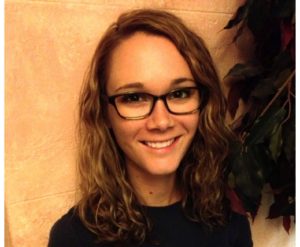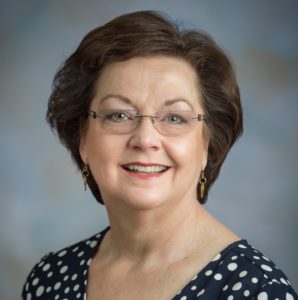The nutrition and food science major in the Colorado State University Department of Food Science and Human Nutrition encompasses dietetics and nutrition management, food safety, food systems, nutrition and fitness, and nutritional sciences. Students have the opportunity to participate in research and community outreach. Three of our outstanding faculty in this area are Leslie Cunningham-Sabo, Megan Mueller, and Susan Baker.
 Leslie Cunningham-Sabo joined the Department in 2007 and holds the positions of professor and director of our coordinated master’s program in dietetics (CMPD). She is also an affiliate faculty member in the Colorado School of Public Health’s Department of Community and Behavioral Health. Her research and teaching focus is on the public health side of nutrition, and she has taught graduate and undergraduate community nutrition courses among others. One aspect of Dr. Cunningham-Sabo’s research investigates the role children’s involvement in cooking has on their diet quality and related factors. The other main focus examines the influence of policies, systems and environments on people’s dietary health outcomes. As director of the CMPD, she advises master’s students in the coursework and supervised practice necessary to become registered dietitian nutritionists.
Leslie Cunningham-Sabo joined the Department in 2007 and holds the positions of professor and director of our coordinated master’s program in dietetics (CMPD). She is also an affiliate faculty member in the Colorado School of Public Health’s Department of Community and Behavioral Health. Her research and teaching focus is on the public health side of nutrition, and she has taught graduate and undergraduate community nutrition courses among others. One aspect of Dr. Cunningham-Sabo’s research investigates the role children’s involvement in cooking has on their diet quality and related factors. The other main focus examines the influence of policies, systems and environments on people’s dietary health outcomes. As director of the CMPD, she advises master’s students in the coursework and supervised practice necessary to become registered dietitian nutritionists.
“It’s not enough to understand how the nutrients and other components in foods impact our health, we need the motivation, skills, and social and physical environments to support healthy food choices. Our students gain knowledge and practice in facilitating individuals’ and communities’ decisions about healthy food availability and behavior,” states Cunningham-Sabo.
 Megan Mueller is an assistant professor and joined CSU in 2019. The overarching goal of her research is to identify and inform systems, policy, and environmental approaches to obesity prevention, with a focus on children and families. She is the recipient of the American Heart Association’s Career Development Award. She is currently studying whether restaurants’ corporate social responsibility commitments are translating into offering healthier menu items and access to healthier foods for communities of color.
Megan Mueller is an assistant professor and joined CSU in 2019. The overarching goal of her research is to identify and inform systems, policy, and environmental approaches to obesity prevention, with a focus on children and families. She is the recipient of the American Heart Association’s Career Development Award. She is currently studying whether restaurants’ corporate social responsibility commitments are translating into offering healthier menu items and access to healthier foods for communities of color.
“One of the great things about FSHN and CSU is the wealth of opportunities for students to learn from faculty doing cutting-edge interdisciplinary and community-engaged work that tackle some of the biggest problems of our time” Mueller said. “There are faculty working on important questions from the cellular level to the societal level, which is really exciting.” “I’ve enjoyed working with students on food systems-related questions around food labeling, business practices around health and the environment, and food insecurity and food access in Colorado.”

Susan Baker is a professor and extension specialist. Baker also leads the Expanded Food and Nutrition Education Program (EFNEP) for Colorado. EFNEP is a federally funded Extension nutrition education program serving low-income families. Baker’s primary research activities relate to the design and evaluation of community nutrition intervention including EFNEP. The training and staff development of paraprofessional educators is one of her passions; she co-authored the book, Maximizing Paraprofessional Potential. Baker led the development of a comprehensive nutrition education curriculum designed to be used by paraprofessional educators titled Eating Smart · Being Active, which is the mostly widely used EFNEP curriculum in the US; currently used in 43 states and 5 territories. She is currently leading a revision of this curriculum to update the content with the 2020 Dietary Guidelines for Americans. During the international COVID-19 pandemic, Baker led the development of a remote delivery version of Eating Smart · Being Active.
“Low-income populations experience poor health disproportionately. Their lives are also often associated with food insecurity, inadequate nutrition, unsafe food practices and limited physical activity. Enrollment in EFNEP is an opportunity for them to learn how to manage their food resources effectively, keep their food safe, enjoy being active as well as how to plan and prepare healthy meals for their families. FSHN students are also involved with EFNEP in a number of ways. Students are involved in the development of new educational materials, assist with research projects and create social media posts,” states Baker.
The Department of Food Science and Human Nutrition is part of CSU’s College of Health and Human Sciences.